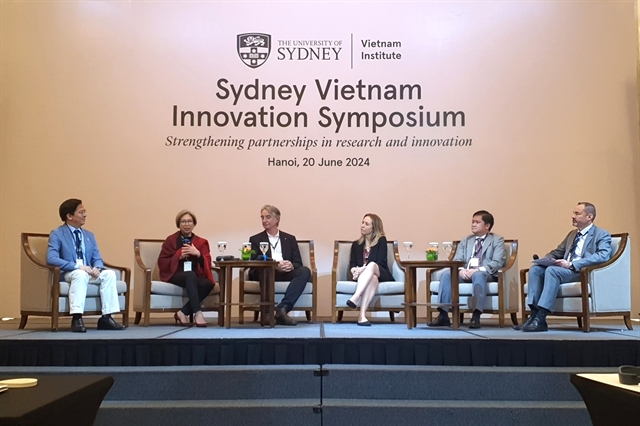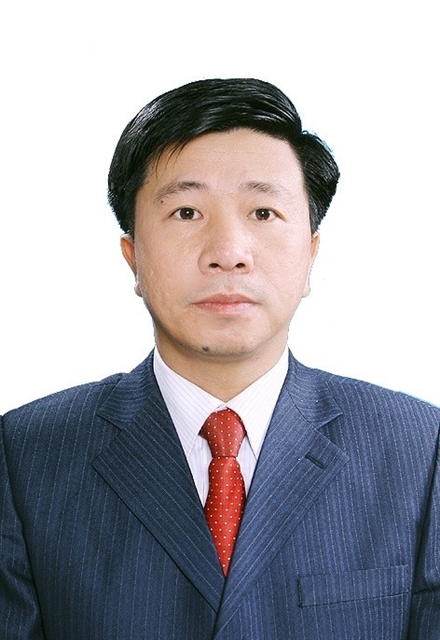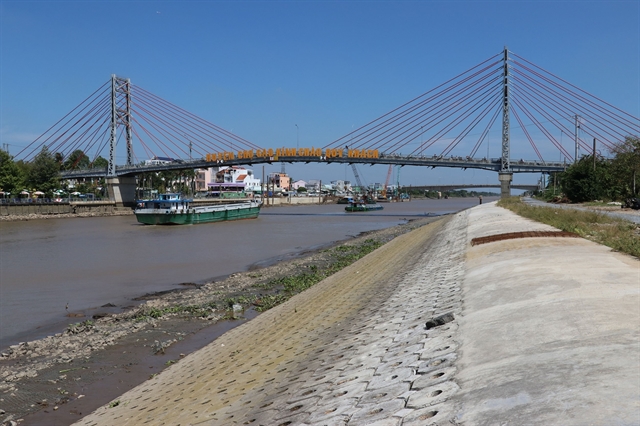 Society
Society

 |
| Phạm Hoài Chung, Deputy Director of the Transport Development and Strategy Institute.— Photo tdsi.gov.vn |
Phạm Hoài Chung, Deputy Director of the Transport Development and Strategy Institute (TDSI) under the Ministry of Transport, talks to Việt Nam News reporter Nguyễn Hằng about the significance of the cooperation between Việt Nam and the Australia in developing Việt Nam's transport infrastructure.
How do you evaluate the recent cooperation between Việt Nam and Australia, particularly in helping Việt Nam to develop its transport infrastructure?
Cooperation in infrastructure development is a vital aspect of the Việt Nam-Australia partnership, particularly through the Aus4Transport programme, supported by the Australian Government.
I believe the programme is highly meaningful for the development of Việt Nam's transport infrastructure.
Under the programme, projects such as the development of the southern inland waterways corridors contribute to reducing logistics costs and promoting environmentally friendly, sustainable transportation in the south of Việt Nam. Another example is the transport connectivity project in the northern mountainous provinces of Việt Nam, which addresses travel difficulties and enhances transport connectivity in the region.
Moreover, the Australian Government also supports various other projects within the programme framework, including technical assistance, gender equality promotion, disability access enhancement and capacity building for transport management officials in Việt Nam. Thus, in my opinion, the programme has already yielded positive results and significant achievements in improving the quality of Việt Nam's transport infrastructure.
Through support for projects connecting transport in the northern mountainous areas, the Central Highlands, work on the southern inland waterway corridors and specific projects to upgrade airports in provinces needing development, Australia's assistance has significantly contributed to the growth of Việt Nam's transport sector. The aid has strengthened regional connectivity and fostered socio-economic development in economically challenging regions, while also reducing logistics costs in key transport corridors such as the southern inland waterways in the country.
 |
| A section of Chợ Gạo Cannal, in the Mekong Delta province of Tiền Giang.— VNA/VNS Photo Hữu Chí |
What is your assessment of the inland waterway sector in Việt Nam and how to reduce logistics costs in the sector?
With its dense network of rivers and canals, Việt Nam can efficiently exploit its northern Red River delta, the Mekong Delta and southeast inland waterway systems. They are the areas with river and canal systems that can contribute to freight transport to reduce the load on road transport activities and contribute to reducing transport and logistic costs.
It will also help increase the competitiveness of Vietnamese products in international trade as inland waterways are suitable for bulk transport and consolidating goods for our seaport system. From there, goods will be exported to countries around the world.
What are your expectations regarding Australia's support for developing Việt Nam's railway system?
Việt Nam needs to enhance institutional reform in order to boost the cooperation in transport projects supported by the Australian Government.
In reality, Australia-supported projects have assisted the Việt Nam Railway Administration refine policies and frameworks to develop the railway system in the coming era. It will be an era when we need strong development of railways so that we will have a synchronous infrastructure system between means of transport, reducing the overall logistics costs of the economy and better contributing to the socio-economic development of the country.
We hope the projects will continue supporting the Việt Nam’s railway sector in improving and completing the infrastructure system after finalising the amended railway law and other institutional reforms in Việt Nam.
To mobilise more resources, we must build trust with donors and partner countries. Effective projects that contribute positively to society and the economy are the best way to ensure continued support and resource development from international partners and organisations, aiding the advancement of Việt Nam's transport sector. — VNS
*Aus4Tranpost is a long-term transport infrastructure development programme, worth AUD30 million (US$20 million), that aims to increase investments in Việt Nam’s transport infrastructure and contribute to an enhanced national transport network that supports inclusive socio-economic growth and alleviates poverty in the country. The Australia-funded programme started in early 2018 and will finish at the end of June.




